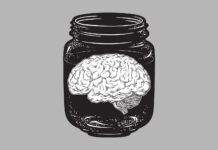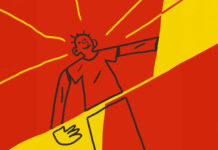Causality in Mental Disturbance: A Review of the Neuroscience
Psychiatry's medicalization of social and psychological suffering is not justified by the currently known biology.
Critical Psychology for a Better Society: An Interview with Sebastienne Grant
Micah Ingle interviews Sebastienne Grant about her work developing a critical psychology program to reimagine and restructure social systems.
Meds vs. No Meds? My Search for Freedom of Mind
I have stayed on the same daily, 10 mg dosage of Abilify for the last few years. Although I am compliant, I am not satisfied: I do not feel whole. I do not feel authentic.
Risk of Depression Spikes When Kids Take Ritalin
Risk of depression increased when children were taking methylphenidate for ADHD, but once they stopped taking the drug, depression risk dropped to normal levels.
Mania or Marijuana?
Is marijuana to blame for my mental health issues? Strange things started happening in my mind once I started using the medical-grade weed.
Thomas Jobe: The Legacy of Research He Leaves Behind
Thomas Jobe was a collaborator in a longitudinal study that upended conventional thinking about antipsychotics. He died March 16.
Medication Overload, Part II: The Explosion of Drugs for Kids
An analysis of the huge increase in drugs for children, the role of Big Pharma, and a look at the impact on families and communities.
The Year Of Potentiality
I lost three years of my life to my first psychosis. I am living proof that your entire world can be smashed into a trillion pieces and you can recover and turn the broken pieces of glass into a kaleidoscope.
Psychotherapy Can Prevent Relapse When Discontinuing Antidepressants
“Short and simple psychological programs can prevent people from relapsing when they stop their antidepressants.”
Psychiatric Drugs Do Not Improve Disease or Reduce Mortality
Nassir Ghaemi: “Most psychiatric medications are purely symptomatic, with no known or proven effect on the underlying disease. They are like 50 variations of aspirin, used for fever or headache, rather than drugs that treat the causes of fever or headache.”
Pathologized Since Eve: Jessica Taylor on Women, Trauma, and “Sexy but Psycho”
Our guest today is Jessica Taylor, author of Sexy But Psycho: How the Patriarchy Uses Women’s Trauma Against Them, which was published in March...
“War Cry For Change”: Veterans Launch Campaign for Informed Consent and Safe Deprescribing at...
Derek Blumke and Timothy Jensen: The Grunt Style Foundation leads a new phase in the movement to combat psychiatric drug harm.
Unheard Voices: Carlton Brown
In the first installment of MIA's Unheard Voices series, Carlton Brown talks about his life, living on the streets, the psychiatric system, and survival.
Psychiatrogenesis (Whither Psychiatry or Reform)
Preying on the privatisation of distress comes the medical-industrial complex perverting the mental health landscape.
Ten Years of Rocking the Boat: Reflecting on Mad in America’s Mission and Work
Continuing our 200th podcast, staff members join us to discuss reinvigorating MIA continuing education, science writing and blogs, personal stories, community commenting and family resources.
Chemicals Have Consequences—Antidepressants and Pregnancy: An Interview With Adam Urato, MD
Adam joins us to discuss what we do and don’t know about the effects of antidepressants on babies and mothers and the importance of counselling in order to aid families in making important decisions about pharmaceutical drug use.
The Clinical, Social, and Cultural Harm of an Iatrogenic Psychiatry
Normal reactions transformed into illnesses, emotions stripped of meaning, & people deprived of their autonomous coping skills and supports.
The WHO and the United Nations: Let Freedom Ring for the Mad
This is a call that challenges how psychiatry is practiced today and ultimately challenges its power in society.
The STAR*D Scandal: Scientific Misconduct on a Grand Scale
The American Journal of Psychiatry Needs to Retract Study That Reported Fraudulent Results
How Western Psychology Can Rip Indigenous Families Apart: An Interview with Elisa Lacerda-Vandenborn
An interview with Elisa Lacerda-Vandenborn about the consequences \psychology and mental health treatment can have for indigenous children.
Psychiatry Is the Cause, Not the Solution
I have found that trauma is frequently at the root of many eventual psychological and medical issues. Medications often only worsen the disconnection caused by trauma.
In a PBS documentary, ECT Is Bad for “Curing” Homosexuality, but Great for Depression!
A new documentary about gay activists' defeat of the APA ends with a disclaimer that ECT is "effective" for severe depression. Bruce Levine spoke with the filmmakers.
How to Be a Happy, Successful Incurable Schizophrenic
If you are a young schizophrenic, I encourage you to accept the challenge of leading a happy, productive, meaningful life.
Akathisia: Very Nearly the Death of Me
Akathisia is truly an indescribable thing—and has to be one of the most hellish experiences on earth. It’s like your brain is hijacked. Every day I thought could be my last.
When Darkness Traps People, Consider The System
EDITOR’S CORNER
If you’ve been following the news over the last week or so, you’ve likely read of Zoraya ter Beek, the young Dutch woman...

































